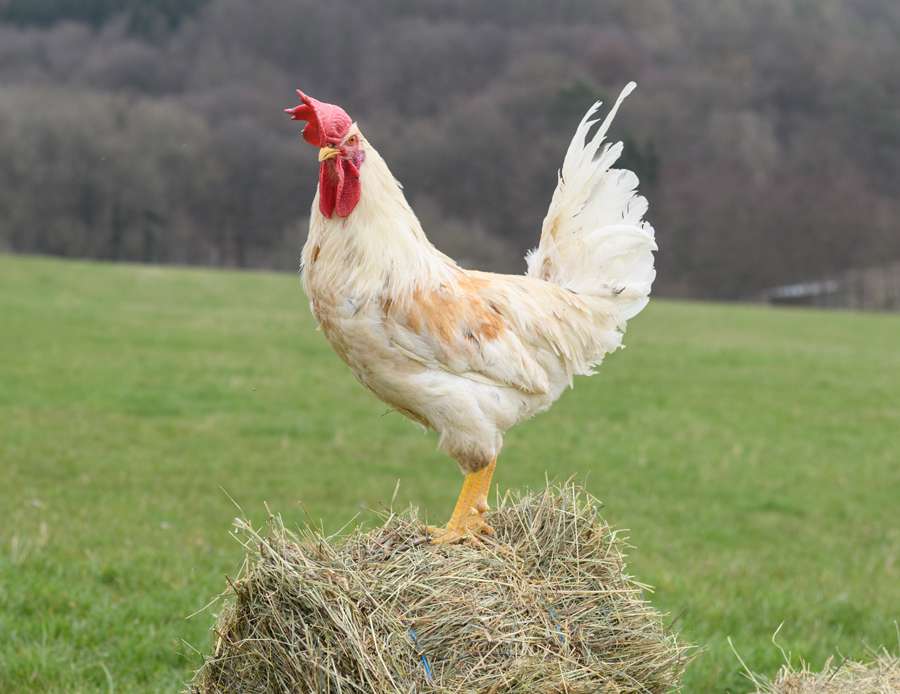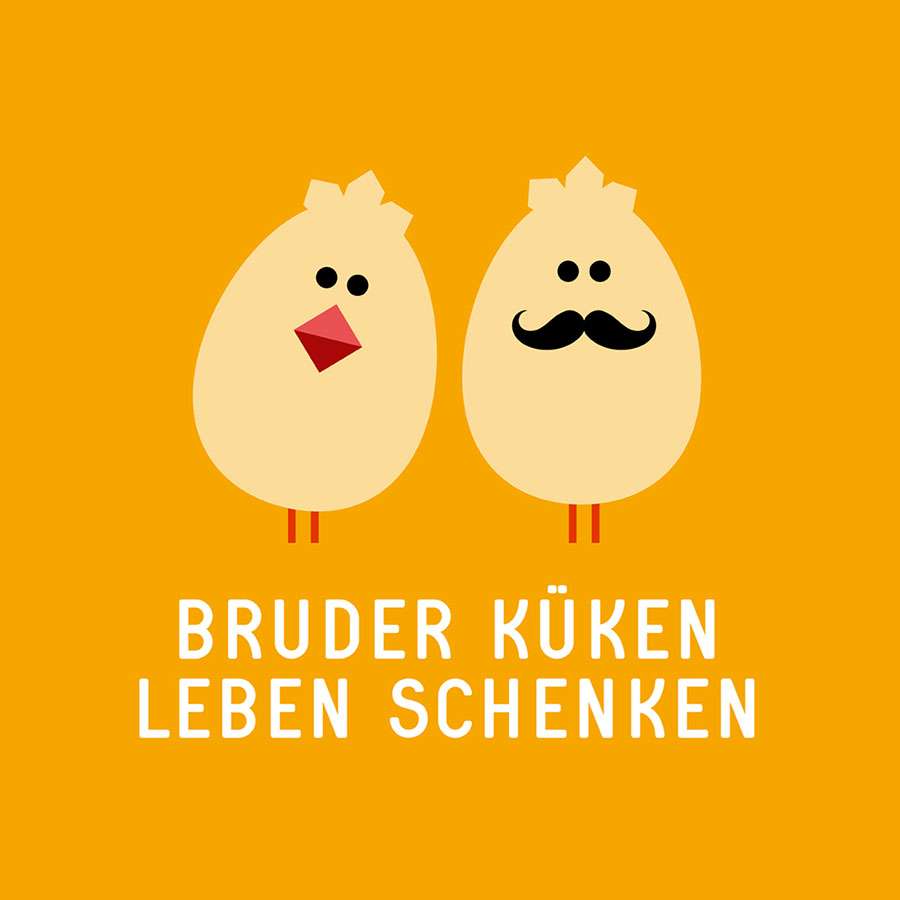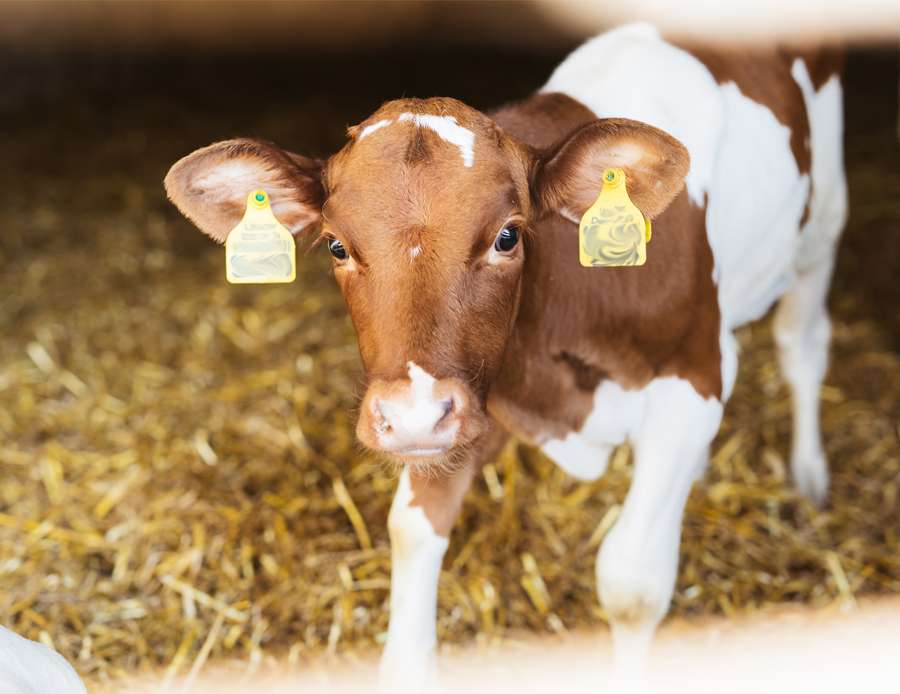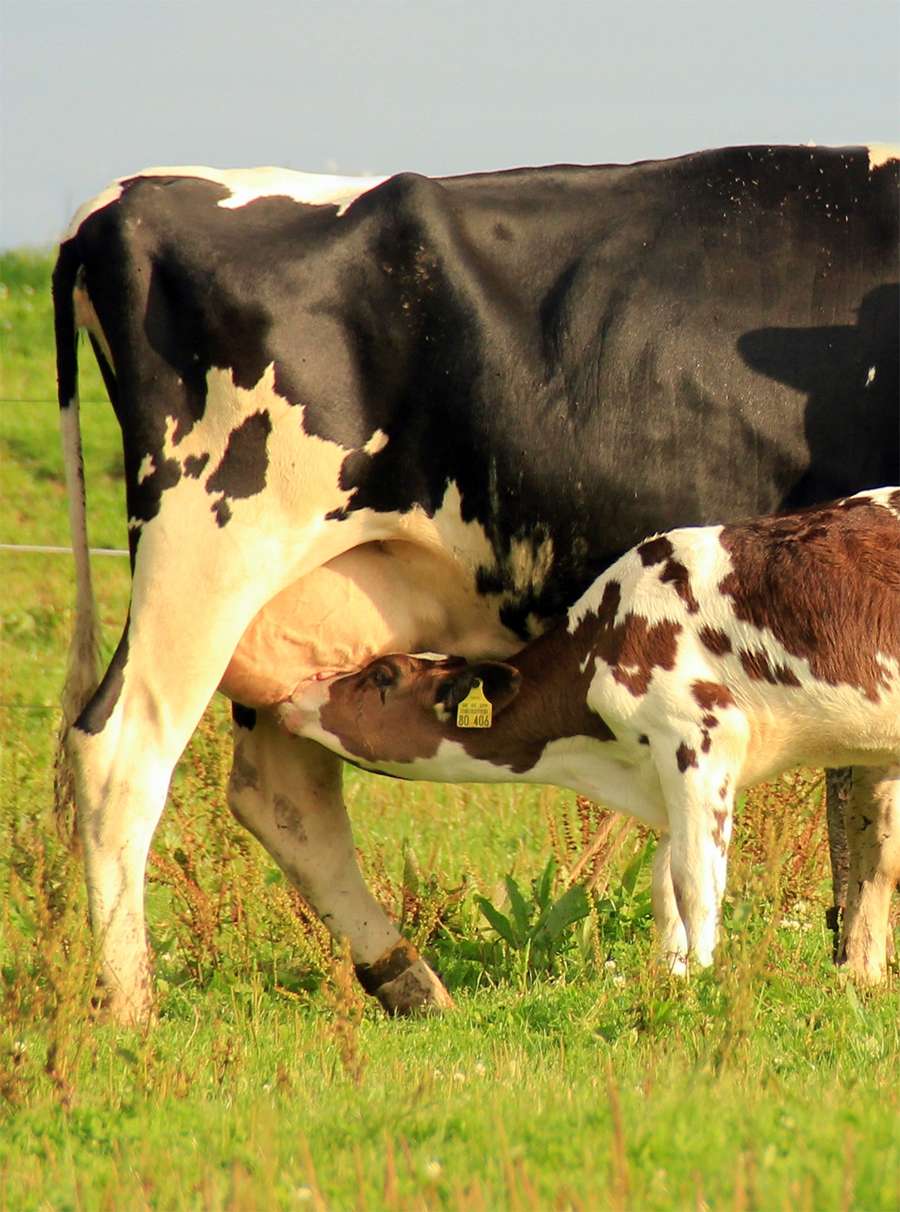Animal welfare
Brother animals
Brother animals
RECOGNISING THE VALUE OF MALE ANIMALS
For centuries, livestock species have been bred with the sole aim of developing high-performance breeds that are geared towards delivering maximum yields. This approach has resulted in breeds of laying hens that often produce over 300 eggs per year and dairy cows with milk yields of 10,000 litres per year. In the process, however, their "brother" chicks and calves have been largely ignored because males do not produce eggs or milk. What's more, these animals are not worth fattening because they produce significantly less meat than their purpose-bred counterparts, namely broilers and beef cattle. Given they have no agricultural value, in the past the males have simply been "disposed of". As such, it's still standard practice today for male chicks to be sent to slaughter immediately after hatching and for male calves from dairy cattle to end up being shipped off to foreign destinations thousands of miles away. In pig farming, although both sexes have always been raised for fattening, there is still controversy surrounding the male animals when it comes to castration among male piglets.
Since organic farms mainly use high-performance breeds in order to remain commercially viable, and because they lack alternatives, they too are part of this controversial system. Nevertheless, they are not willing to give up that easily – which is why for years now they have been searching for solutions to give some value back to "brother" chicks and calves.
Increasing awareness among consumers provides additional impetus. Whereas in the past there was very little awareness of the topic, consumers are now becoming increasingly critical when choosing and buying animal products. And one thing is for sure: if consumers are not on board, it's a lost cause. Consumers who regularly eat organic eggs and drink organic milk, and who think organic farms should raise their male chicks and calves, should also buy organic meat from brother roosters and calves from time to time.
That´s how we want to handle with male livestock
Roosters


Film zur Naturland Initiative "Bruderküken Leben schenken":
Data protection notice: By clicking on the Youtube video, you agree to our data protection provisions.
Video below in German language.
LET BROTHER CHICKS LIVE
We simply cannot and will not continue with this approach, which is why we have launched our "Let brother chicks live" initiative. In future, all the brother chicks of Naturland laying hens must be allowed to grow into adults just like their sisters. This will allow us to solve two problems in the poultry sector at once: it will prevent chicks from being culled and ensure the economic viability of raising brother roosters.
After all, they may not put on as much meat as broilers, but we believe they do have the same right to a decent life as livestock. Our organic brother roosters are predominantly kept in single-sex groups and raised with lots of compassion, access to the outdoors, space to scratch and organic feed to eat.
Naturland launched its "Ei care ("I care") campaign" back in 2011. It was one of the first ever anti-chick-culling initiatives. Numerous other initiatives and projects later, Naturland has now taken the decisive action to mandate raising organic brother chicks for all farms from 2022. The corresponding policy was adopted in June 2021 and great progress is already being made towards its implementation. This will enable our farmers to allow almost a million brother chicks each year to live a life of value.
DUAL-PURPOSE CHICKENS
In addition to raising brother chicks from pure laying breeds, Naturland is also working on developing so-called "dual-purpose" chickens. These breeds are designed for both purposes from the outset. The aim of the RegioHuhn project is to use six old regional breeds to create new dual-purpose chicken breeds that are suitable for real-world applications. This explanatory film by Naturland farmer Fabian Häde clearly demonstrates what sets dual-purpose chickens apart.
By buying our Naturland eggs, meat and processed poultry products such as minced and jointed meat, you can help us to create even more. As a consumer, your buying choices have a real influence on welfare-orientated, organic livestock farming. If you too would like to let brother chicks live, all you have to do is look for the brother chick label next to the Naturland logo next time you’re buying meat at a farm shop, health food shop or supermarket.
Calves


The market for organic milk is booming. However, not enough consumers realise that milk and meat go hand in hand. Without calves, organic dairy products would not exist, because cows only produce milk after giving birth to a calf. Fifty percent of those calves, however, are male, and rearing the so-called "brother calves" incurs significant costs for organic milk farmers. While female calves generally stay on the farm to replenish the herd, brother calves are sold and usually end up being fattened for meat. This practice is far from satisfactory for organic farms but there is a distinct lack of viable alternatives (as of yet). Rearing both genders for commercial gain leads to higher costs and would render the already low-margin enterprise of milk production unprofitable.
Organic farms would only be able to implement this approach if they were to charge higher end consumer prices for dairy produce and meat products from brother calves. The same problem is encountered when trying to find alternative solutions for calf rearing. It's currently common practice to separate calves from their mothers shortly after birth and to raise them separately.
Thankfully, consumer awareness of the calf issue in milk production is increasing and with it, their willingness to pay a premium for products that have been produced on farms that raise their calves with compassion. For organic dairy farming, this means a shift towards calf rearing and beef production practices that recognise the value of brother calves, as demonstrated by Naturland's Schwarzwald Bio-Weiderind initiative.
USING COWS TO REAR CALVES AS A SOLUTION
The number of organic farms and initiatives, such as Naturland's Hof Hellmig farm, that are working towards using cows to raise calves is constantly on the rise. Dairy farmers either raise the male calves themselves on the farm or look for a local partner farm with organic suckler cows that will take the brother calves on and sell them on afterwards.
This method of rearing also means that female calves can feed for longer with their mothers or a suckler cow, which is an added bonus for their welfare. Although only a few organic farms have trialled this approach so far, they are important flagship initiatives that show that this method works and encourage others to follow suit.



